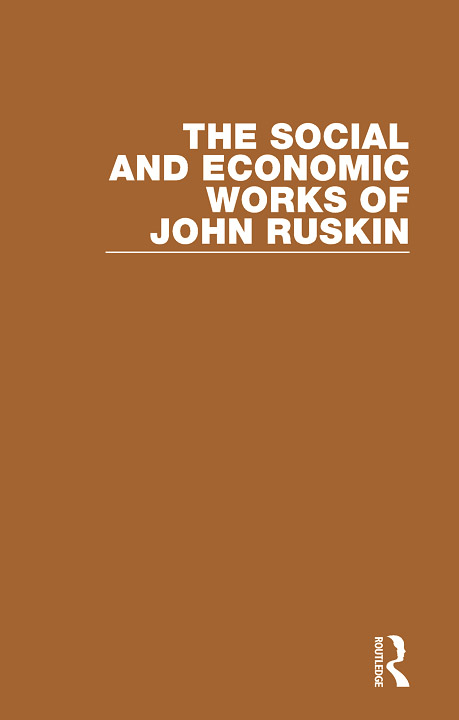John Ruskin was over forty years old and well-established as an art critic when he published, in the Cornhill Magazine, the four essays on political economy which, two years later, were brought together in book form under the title Unto This Last. His views were violently repudiated by the majority of the Cornhill’s readers, and Thackeray, the famous novelist who was its editor, was forced, after the third essay had appeared, to curtail what Ruskin had clearly intended to be a longer exposition of his ideas. Most reviewers of the published book also found the ideas expressed either repugnant or incomprehensible. The strength of the reaction may have owed something to the fact that Ruskin’s early readers were unprepared for what most of them must have seen as an abrupt shift in the focus of his attention. Yet in many ways Unto This Last was the logical outcome of Ruskin’s experience. As attentive readers of Modern Painters and the Political Economy of Art (first published in 1857 and later reprinted as A Joy for Ever) would have already noted, he had long been convinced that high artistic achievement was only possible in a society in which the relations between rich and poor were based on justice and that justice was in short supply in capitalist Britain. Indeed, Ruskin would have directly confronted the issues raised in Unto This Last much earlier in his career had it not been for his scruples about offending his beloved father.
